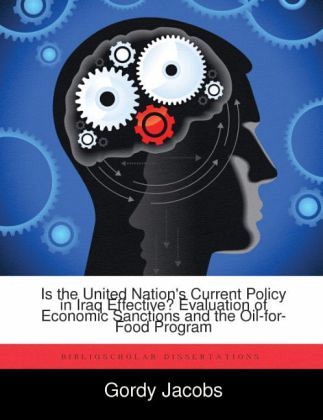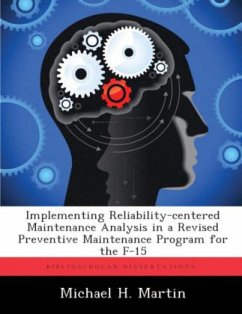
Is the United Nation's Current Policy in Iraq Effective? Evaluation of Economic Sanctions and the Oil-for-Food Program
Versandkostenfrei!
Versandfertig in über 4 Wochen
54,99 €
inkl. MwSt.

PAYBACK Punkte
27 °P sammeln!
The United Nations policy toward Iraq, consisting of economic sanctions and what has come to be known as the Oil for Food program, is flawed- it does not meet either the national security objectives or the humanitarian objectives it was set out to accomplish. Saddam Hussein is still a threat and the Oil for Food program, the largest humanitarian program ever administered by the United Nations (UN), has done little to stop the widespread suffering of the Iraqi people. On one hand, the policy is evaluated on its success or failure in terms of national security by the United States Administration...
The United Nations policy toward Iraq, consisting of economic sanctions and what has come to be known as the Oil for Food program, is flawed- it does not meet either the national security objectives or the humanitarian objectives it was set out to accomplish. Saddam Hussein is still a threat and the Oil for Food program, the largest humanitarian program ever administered by the United Nations (UN), has done little to stop the widespread suffering of the Iraqi people. On one hand, the policy is evaluated on its success or failure in terms of national security by the United States Administration and a number of prominent U.S. think-tanks. On the other hand, it is evaluated based on its success or failure as humanitarian intervention by the International Committee of the Red Cross, the World Health Organization, the World Food Program, and a number of non-governmental organizations. Conclusions are based on the respective 'frame of reference' thereby polarizing the issue. A comprehensive policy for Iraq must address both national security and humanitarian concerns if it is to be successful. Politics and humanitarian intervention cannot be separated.














